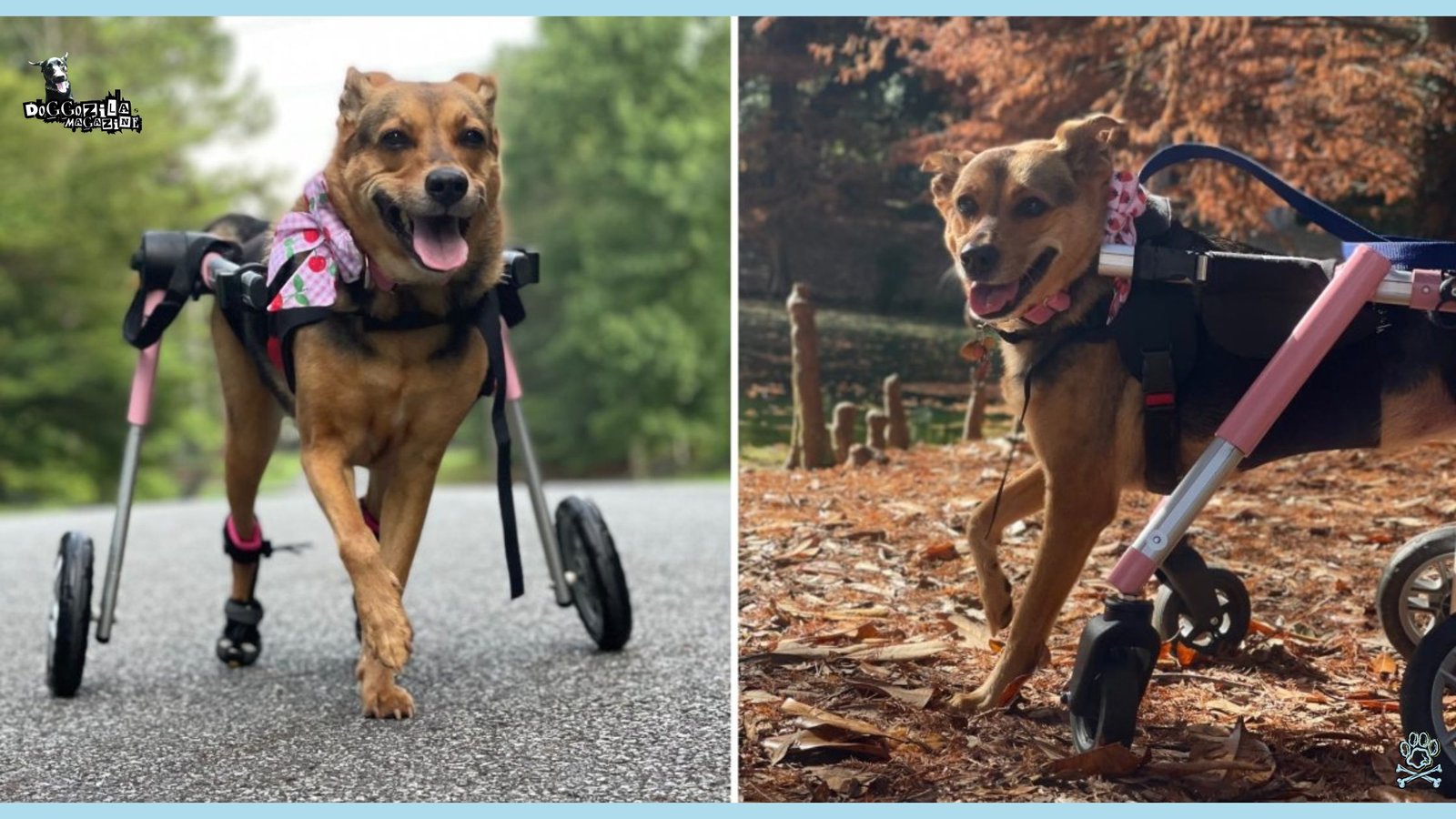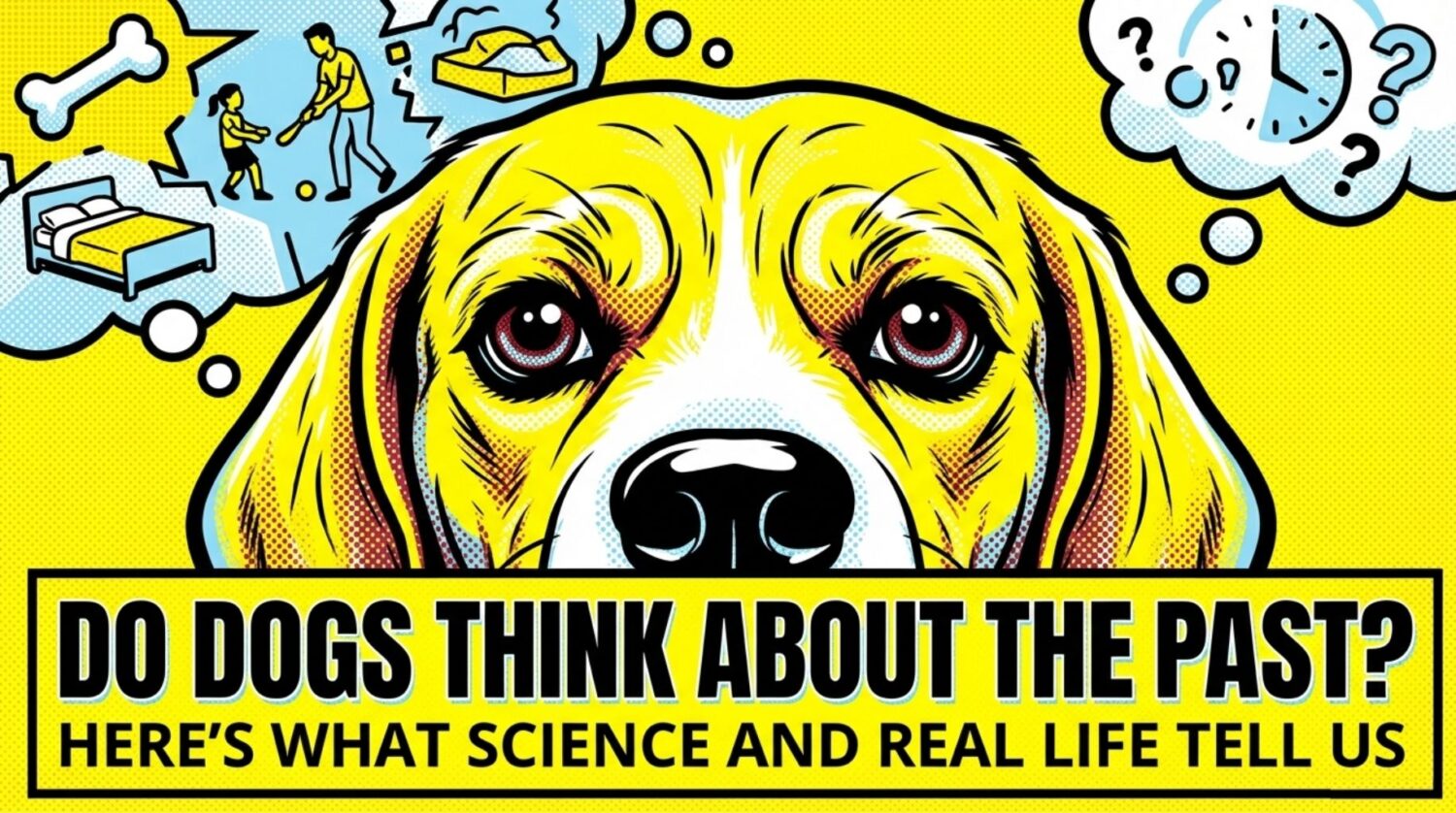Muscular dystrophy in dogs is a heartbreaking but fascinating condition that challenges both pets and their owners. Imagine your energetic pup slowly losing the ability to run, jump, or even stand—this is the reality for dogs with this genetic disorder.
But here’s the good news: science is making strides, and with the right care, affected dogs can still live happy lives. From cutting-edge research to simple home adjustments, there’s so much we can do. Let’s dive into this adventure of understanding, managing, and even defying the odds of muscular dystrophy in dogs.
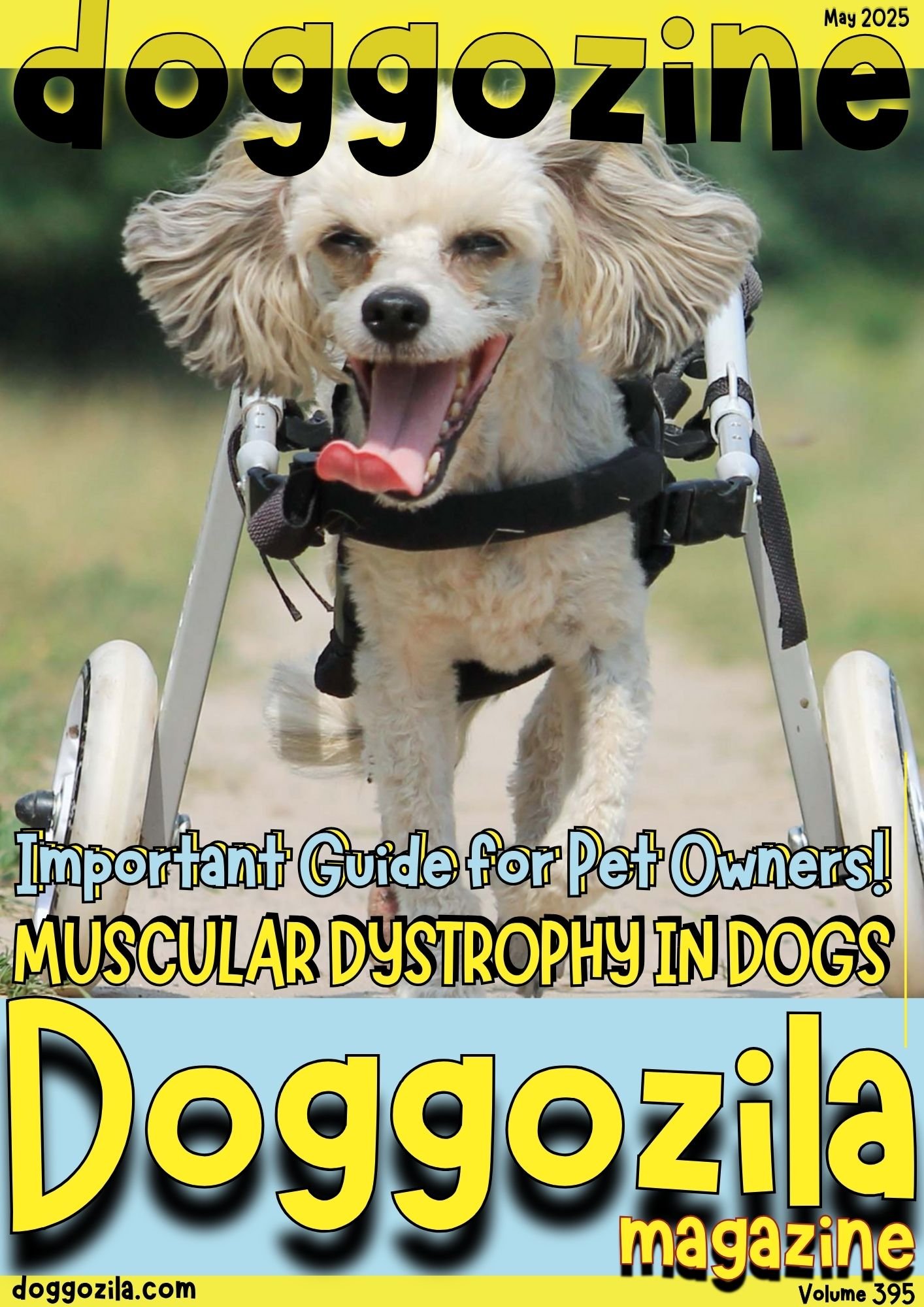
WHAT IS MUSCULAR DYSTROPHY IN DOGS, AND HOW DOES IT WORK?
Muscular dystrophy in dogs isn’t just one disease—it’s a group of genetic disorders that cause progressive muscle weakness and degeneration. At the cellular level, a missing or defective protein (usually dystrophin) means muscles can’t repair themselves properly. Over time, healthy muscle tissue gets replaced by scar tissue or fat, leading to weakness, tremors, and mobility issues.
Some forms, like X-linked muscular dystrophy, are more severe and appear in puppies as young as a few months old. While it’s rare, certain breeds are more prone to it, making genetic awareness crucial for breeders and owners alike.
The Science Behind Muscular Dystrophy in Dogs: A Genetic Puzzle
Every muscle movement relies on a complex dance of proteins, and when one key player (like dystrophin) is missing, the whole system falters. Researchers have found that in dogs, the mutation often occurs on the X chromosome, which is why male dogs are more frequently affected.
Without dystrophin, muscle fibers become fragile and easily damaged during normal activity. Over time, the body’s attempts to repair them lead to scarring instead of regeneration. Interestingly, some dogs show mild symptoms for years, while others deteriorate rapidly—scientists are still figuring out why.
How Muscular Dystrophy in Dogs Differs from Human Forms
You might wonder: Is this the same as Duchenne muscular dystrophy in humans?
Surprisingly, yes—the canine version mirrors the human disease closely, making dogs valuable in medical research. Because dogs share our environment and live long enough to show disease progression, they help scientists test potential therapies.
Golden Retrievers with muscular dystrophy, for example, have contributed to breakthroughs in gene therapy trials. This crossover between veterinary and human medicine is one of the coolest aspects of studying this condition.
Real-Life Stories: Dogs Thriving Despite Muscular Dystrophy
Meet Max, a Labrador mix who was diagnosed at 10 months old but learned to adapt with the help of a custom wheelchair. Then there’s Bella, a German Shepherd whose owner used hydrotherapy to keep her muscles strong for years.
These stories prove that while muscular dystrophy in dogs is serious, it doesn’t have to mean a life without joy. Creative owners have found ways to modify toys, create obstacle courses, and even teach new commands that work around physical limitations.
The key? Focusing on what the dog CAN do, not what they can’t.
🔑 Key Points: Muscular dystrophy in dogs is a group of genetic disorders causing progressive muscle weakness due to defective or missing proteins like dystrophin, leading to muscle degeneration over time.
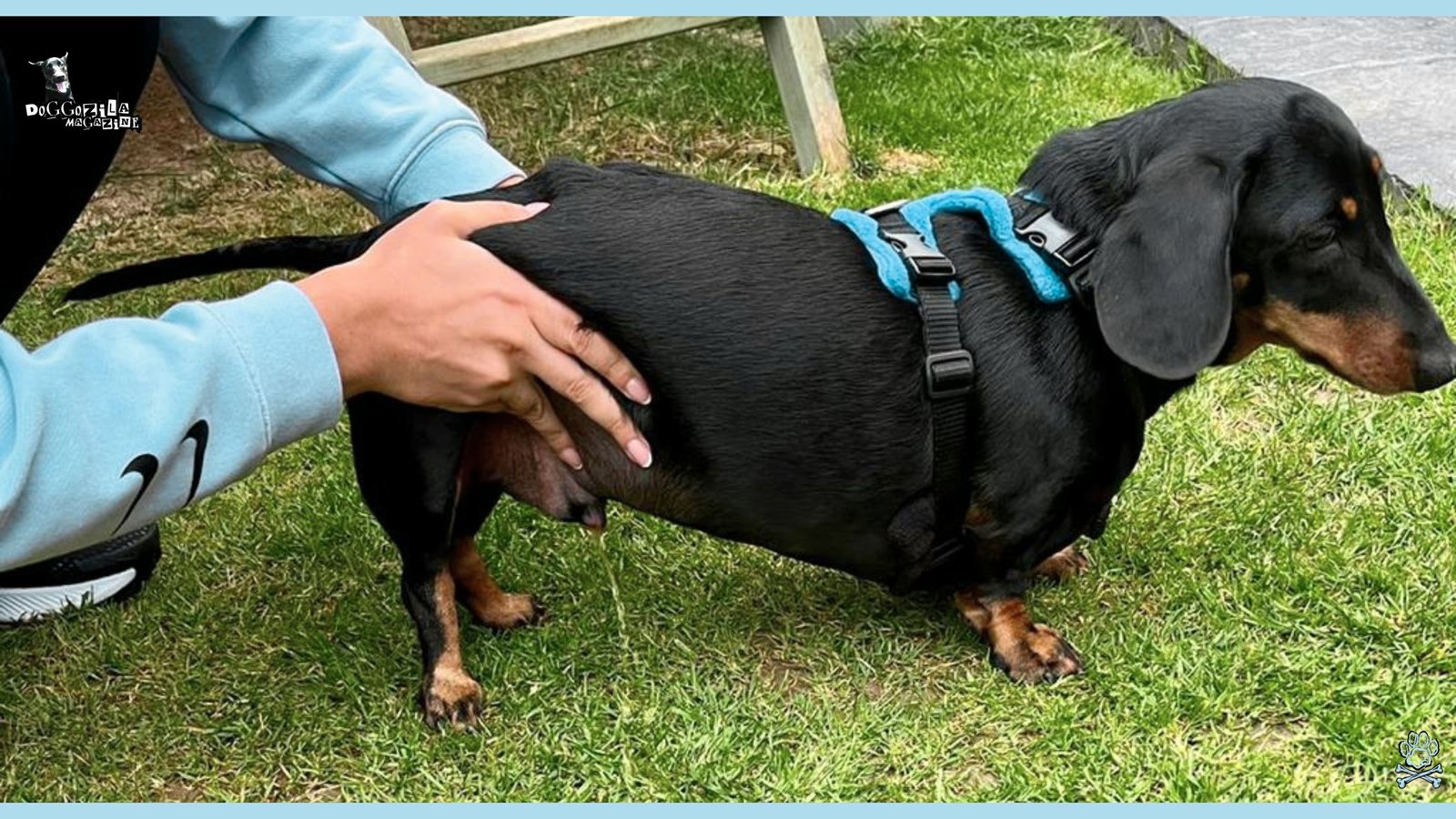
SPOTTING THE SIGNS: EARLY SYMPTOMS OF MUSCULAR DYSTROPHY IN DOGS
Early detection is your best weapon against rapid progression, so knowing what to look for is crucial. Some dogs develop a stiff, awkward walk or start trembling after mild exercise. Puppies with severe forms may show enlarged tongues, difficulty swallowing, or even heart problems.
The first red flags might be subtle: a slight “bunny hop” gait in the hind legs, excessive tiredness after play, or trouble standing up smoothly. If your dog seems “off” but you can’t pinpoint why, don’t ignore it—schedule a vet visit.
The Progression Timeline: What to Expect Over Time
In mild cases, dogs may maintain good mobility for years with proper care. Moderate cases often show noticeable decline between ages 2–5, with increasing trips and falls. Severe cases can lead to life-threatening complications like respiratory failure by 1–2 years old.
However, progression varies wildly—some dogs plateau for long periods, while others have sudden drops in ability. Keeping a symptom journal helps track changes and adjust care plans accordingly.
Breed-Specific Risks: Is Your Dog More Vulnerable?
While any dog can develop muscular dystrophy, these breeds are at higher risk:
- Golden Retrievers (most studied breed for this condition)
- German Shepherds (often show later-onset symptoms)
- Rottweilers (prone to a unique form affecting the heart)
- Irish Terriers (may show mild, non-progressive form)
When to Rush to the Vet: Emergency Signs
Most symptoms develop gradually, but these warrant immediate care:
- Sudden inability to stand
- Labored breathing or excessive panting
- Choking sounds while eating/drinking
- Blue-tinged gums (sign of oxygen deprivation)
These could indicate advanced muscle weakness affecting critical functions—don’t wait.
🔑 Key Points: Early symptoms include muscle tremors, “bunny hop” gait, fatigue, and difficulty standing, with severe cases potentially leading to heart or respiratory issues.
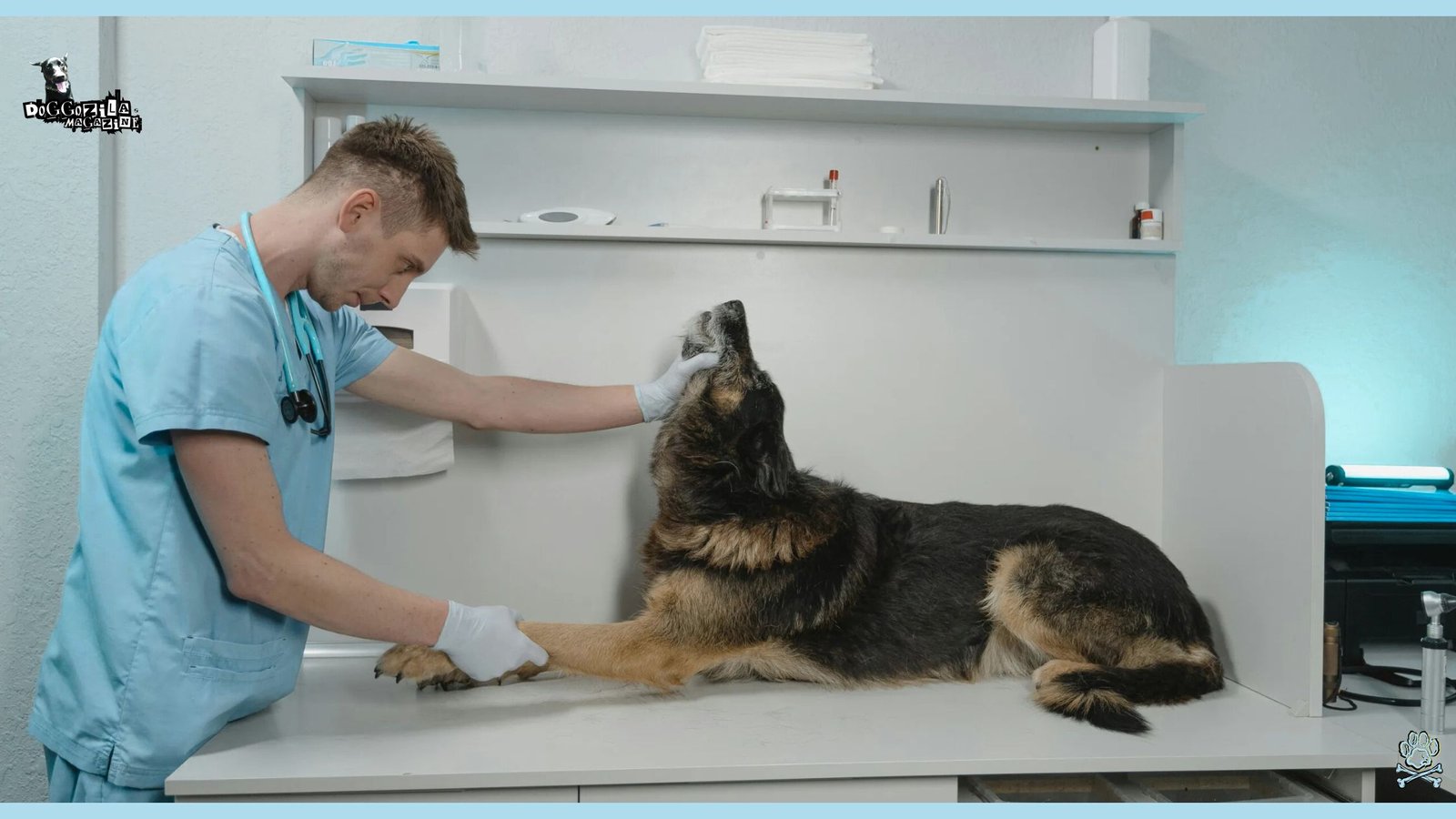
DIAGNOSING MUSCULAR DYSTROPHY IN DOGS: TESTS AND TECH
Getting a definitive diagnosis involves multiple steps because symptoms overlap with many other conditions. Your vet will likely start with blood tests to check for elevated creatine kinase (CK), a marker of muscle damage. Electromyography (EMG) can detect abnormal electrical activity in muscles, while a muscle biopsy provides the gold-standard confirmation.
Some clinics now offer genetic testing for dogs—especially useful for breedeers. Advanced imaging like MRI may show muscle degeneration patterns unique to muscular dystrophy.
Genetic Testing: Should You Do It?
For at-risk breeds, genetic tests can identify carriers before breeding (preventing affected puppies). They’re also useful for early diagnosis in pets showing vague symptoms. Companies like Embark and UC Davis offer canine muscular dystrophy panels. The process is simple: a cheek swab or blood sample sent to a lab. If positive, you’ll have time to plan care strategies before symptoms worsen.
Muscle Biopsies: What to Expect
This minor surgical procedure removes a small muscle sample (often from the thigh) for analysis. Dogs are under light sedation, and most recover quickly. Pathologists look for telltale signs: abnormal fiber size, fibrosis, and fat infiltration. While invasive, biopsies provide the most accurate diagnosis and can rule out similar diseases like myositis.
Ruling Out Look-Alike Conditions
Several disorders mimic muscular dystrophy, including:
- Degenerative myelopathy (nerve disease, more common in older dogs)
- Arthritis (causes stiffness but not muscle wasting)
- Toxin exposure (certain poisons cause sudden muscle weakness)
- Infectious myositis (from tick-borne diseases)
Your vet may recommend tests for these before confirming muscular dystrophy.
🔑 Key Points: Diagnosis involves blood tests, muscle biopsies, and genetic testing, with certain breeds (e.g., Golden Retrievers, German Shepherds) being more susceptible.
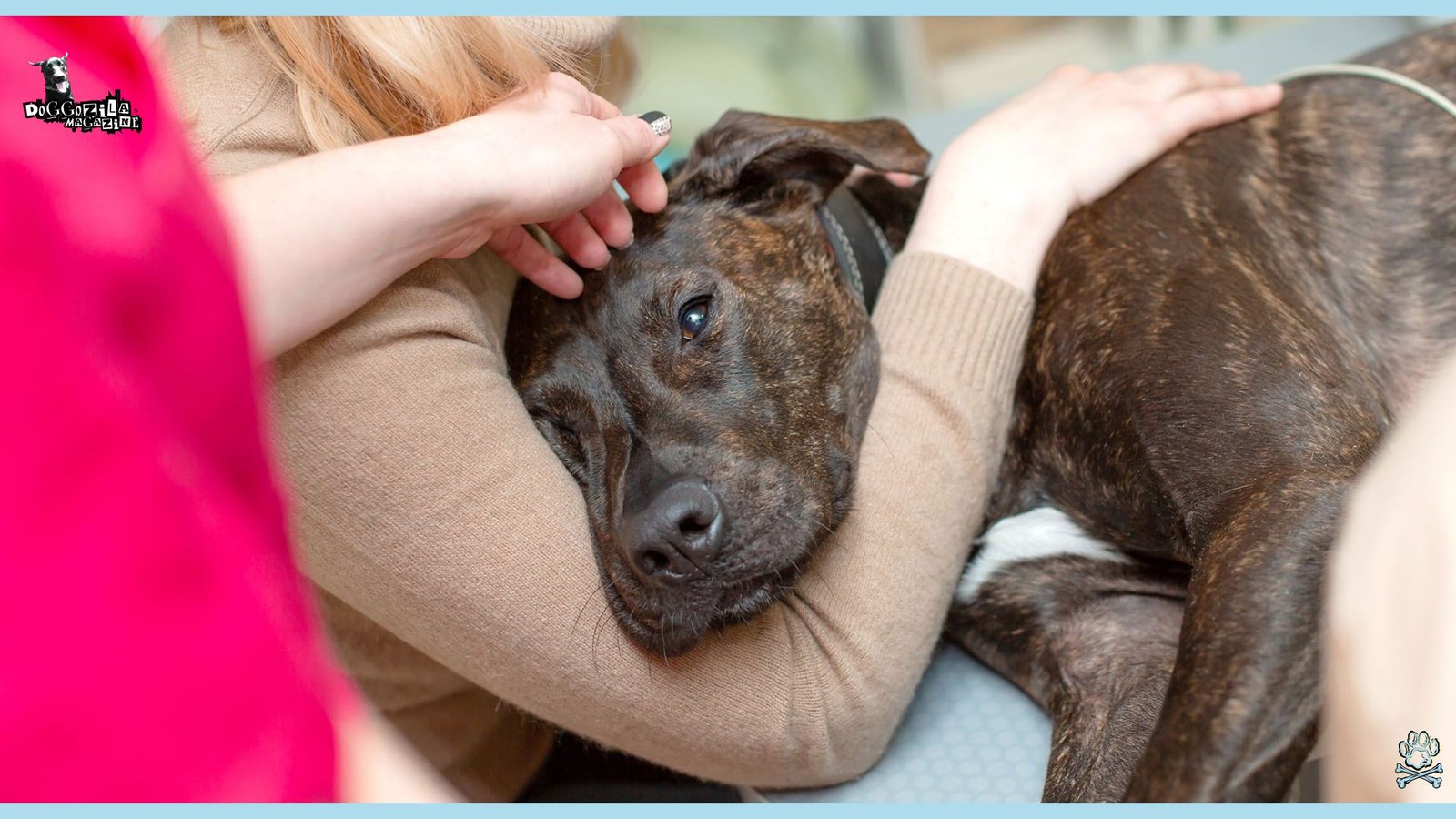
TREATMENT BREAKTHROUGHS FOR MUSCULAR DYSTROPHY IN DOGS
While there’s no cure yet, treatments can slow progression and improve quality of life dramatically. Anti-inflammatory drugs like prednisone reduce muscle damage and pain. Physical therapy preserves mobility longer—underwater treadmills are especially effective.
Experimental options like stem cell therapy show promise in early trials. Many owners combine traditional and holistic approaches (like acupuncture) for best results. The field is advancing fast—what’s experimental today might be standard care tomorrow.
The Role of Physical Therapy in Managing Muscular Dystrophy in Dogs
Physical therapy plays a crucial role in slowing muscle deterioration and improving mobility. Low-impact exercises like swimming are excellent for maintaining strength without stressing joints. Stretching routines can prevent contractures, where muscles become permanently shortened.
Massage therapy increases blood flow, reducing stiffness and discomfort. Customized rehab plans, designed by veterinary physiotherapists, ensure exercises are safe and effective. Consistent therapy sessions can significantly enhance a dog’s quality of life.
Innovative Research with Gene Therapy: Future Treatments for Muscular Dystrophy in Dogs
Exciting advancements in gene therapy for dogs offer hope for future treatments. Researchers are exploring techniques to replace or repair the defective dystrophin gene in affected dogs. Stem cell therapy is another promising avenue, with studies showing potential in regenerating damaged muscle tissue.
While these treatments are still experimental, early results are encouraging. Clinical trials in veterinary medicine may pave the way for breakthroughs that could eventually benefit both dogs and humans.
In groundbreaking studies, dogs with muscular dystrophy treated with gene therapy regained muscle strength for years. Scientists use harmless viruses to deliver healthy dystrophin genes to muscles. While still mostly in trials, some veterinary schools offer experimental programs. The potential is huge—this could one day be a cure.
Stem Cell Success Stories
Stem cells harvested from a dog’s own fat or bone marrow are injected into damaged muscles to promote repair. Though not a cure, many dogs show improved mobility for 6–12 months per treatment. Costs are high ($2,000–$5,000), but crowdfunding has helped many pets access this option.
Holistic Approaches: Can Diet and Supplements Help?
A balanced diet rich in high-quality protein supports muscle maintenance in dogs with muscular dystrophy. Supplements like L-carnitine and vitamin E may aid in muscle function and reduce oxidative stress.
Some owners report improvements with CBD oil for pain in dogs and inflammation management. Always consult a vet before introducing new supplements to avoid interactions. While holistic methods aren’t a cure, they can complement traditional treatments effectively.
Nutritional Considerations and Supplementation
Healthy dog diet plays a surprisingly significant role in managing muscular dystrophy symptoms. High-quality protein sources help maintain existing muscle mass, while controlled calorie intake prevents obesity that would stress weakened muscles. Many veterinarians recommend adding omega-3 fatty acids (from fish oil or algae) to reduce inflammatory damage to muscle tissue.
Antioxidants like vitamin E may help combat oxidative stress contributing to muscle degeneration. Some dogs benefit from medium-chain triglycerides (MCTs) found in coconut oil, which provide alternative energy for struggling muscles.
For dogs with swallowing difficulties, moistening kibble or switching to soft foods prevents choking. Always consult your vet before making dietary changes, as individual needs vary significantly based on disease progression and other health factors.
🔑 Key Points: Treatment focuses on slowing progression through anti-inflammatory drugs, physical therapy (e.g., hydrotherapy), and experimental options like gene or stem cell therapy.
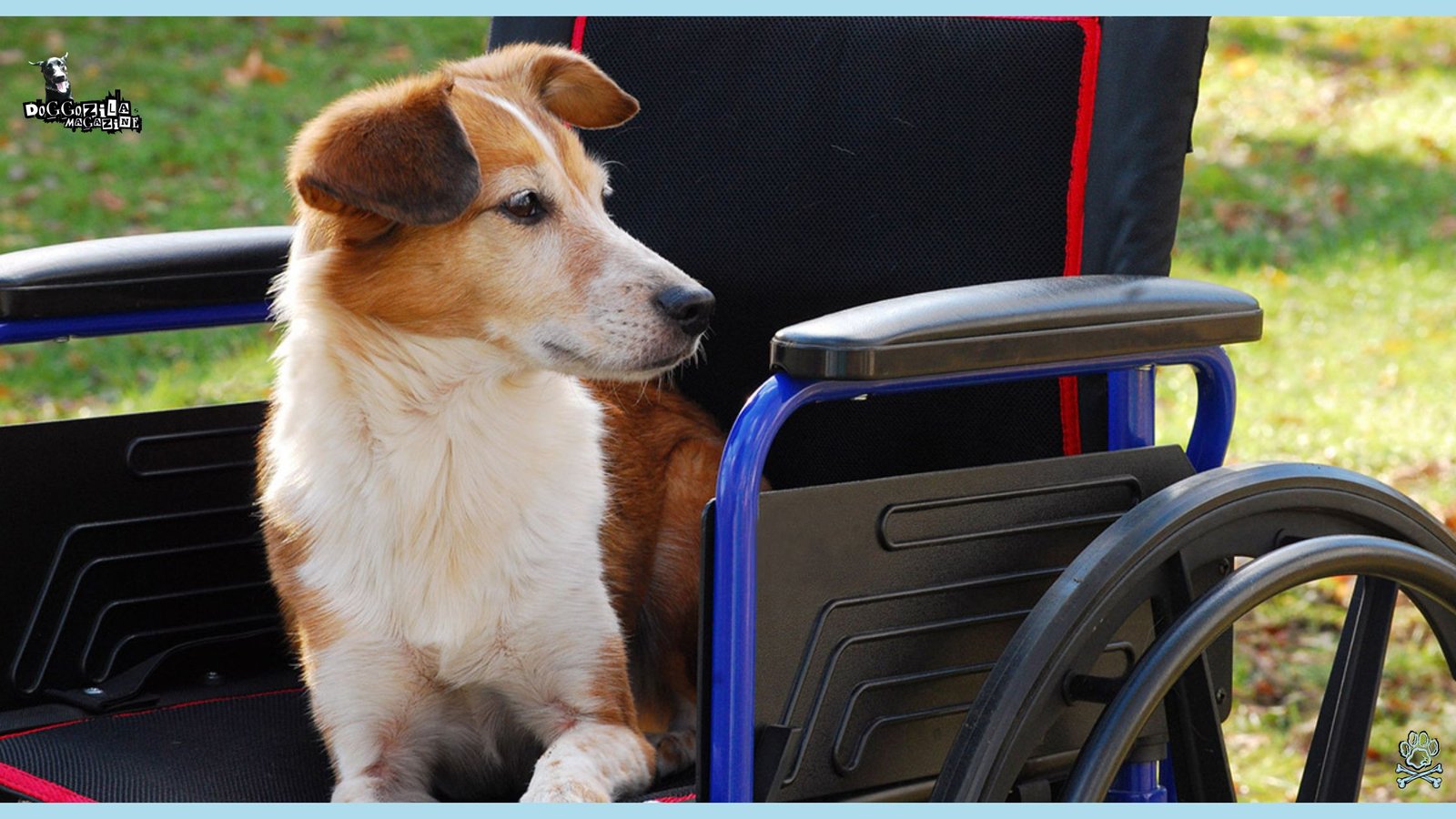
DAILY LIFE HACKS FOR DOGS WITH MUSCULAR DYSTROPHY
Living with a muscle-weakened dog requires creativity but can be deeply rewarding. Non-slip mats prevent falls on hardwood floors. Harnesses with handles help you lift them gently. Raised feeders make eating easier as neck muscles weaken. Small adjustments make a huge difference in daily happiness.
Many owners build DIY ramps over stairs. The goal? Maximize independence while minimizing frustration.
Exercise Do’s and Don’ts
DO:
- Short, frequent walks (5–10 mins, 3x/day)
- Swimming or underwater treadmill sessions
- Gentle stretching routines
DON’T:
- Let them overexert (stop before panting heavily)
- Allow jumping on/off furniture
- Skip warm-ups before activity
Mental Stimulation Ideas
When physical play is limited, keep their mind sharp with:
- Scent games (hide treats in easy-to-reach spots)
- Puzzle feeders (slow eating while engaging brains)
- Training new verbal commands (no physical tricks)
- Audiobooks/music (some dogs relax to soft sounds)
When to Consider a Canine Wheelchair
Signs your dog may benefit:
- Dragging hind legs frequently
- Unable to stand for more than a few seconds
- Frustration when trying to move
Modern wheelchairs are lightweight and customizable—many dogs adapt within days, zooming around happily again.
🔑 Key Points: Daily care adjustments—like non-slip mats, raised feeders, and wheelchairs—can significantly improve quality of life by enhancing mobility and safety.
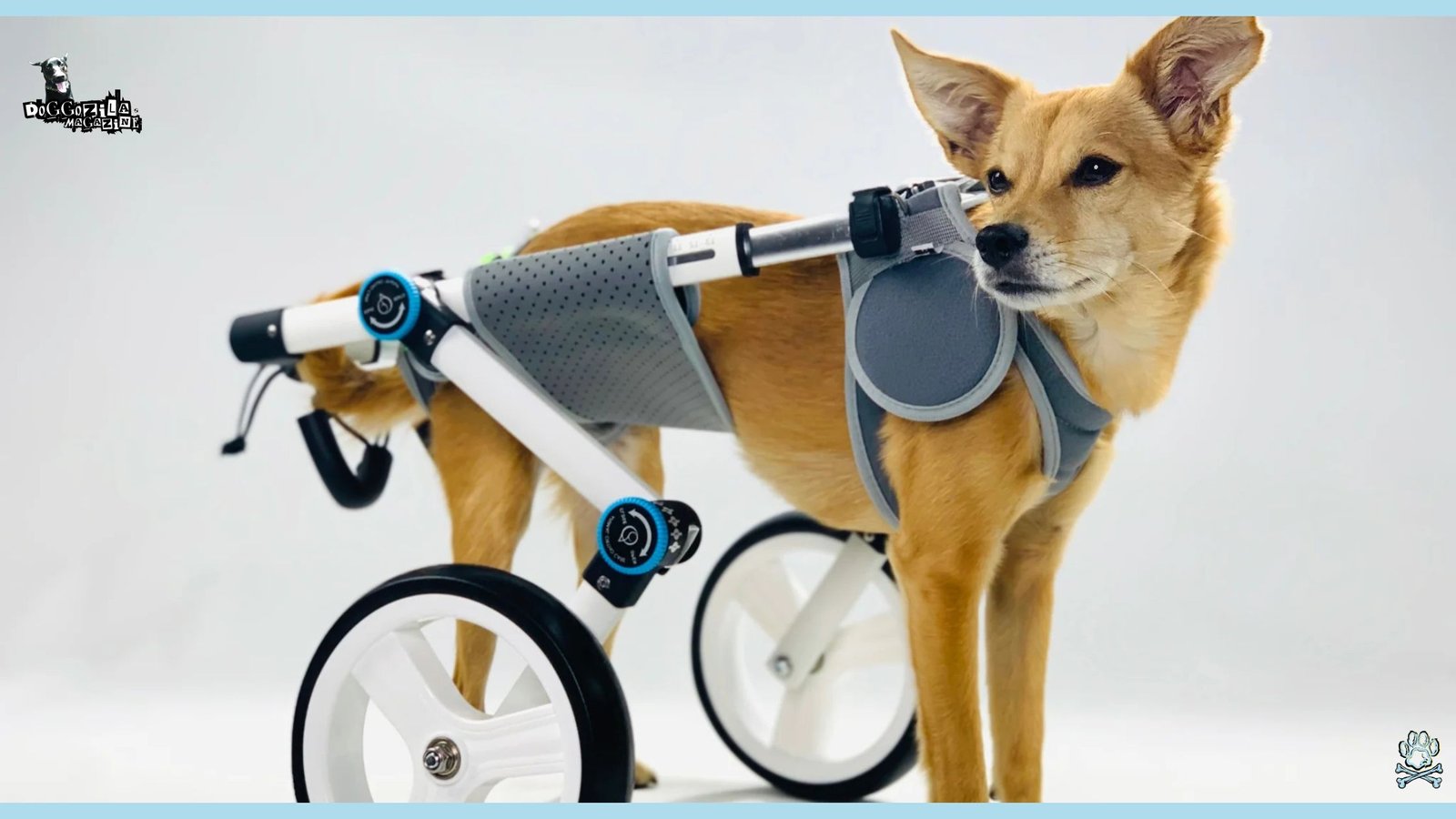
THE EMOTIONAL JOURNEY: COPING AS AN OWNER
Watching your dog’s abilities fade is heartbreaking, but your mindset shapes their experience. Celebrate small victories—maybe today they stood unaided for 10 extra seconds. Remember, dogs live in the moment—they don’t mourn lost abilities like we do. Your love is their greatest comfort.
Connect with online communities (Facebook has great support groups). Consider therapy if grief feels overwhelming.
Making the Tough Decisions
Quality-of-life scales help objectively assess when to consider euthanasia for your dog.
Key factors:
- Can they still enjoy favorite activities?
- Is pain managed effectively?
- Are basic functions (eating, eliminating) possible without distress?
Vets often say, “Better a week too early than a day too late” to prevent suffering.
Paw-sitive Vibes Only: Uplifting Stories
Like the terrier who learned to “scoot” so fast he outraced healthy dogs at the park. Or the mastiff whose owner built a pulley system to help him stand for hugs. These stories remind us that adaptability—both canine and human—is amazing.
The Horizon: What’s Next in Research?
Scientists are working on:
- CRISPR gene editing to permanently correct mutations
- Exon-skipping drugs that help muscles produce partial dystrophin
- Myostatin inhibitors to promote muscle growth
With dogs leading the way, treatments developed for them may eventually help children with muscular dystrophy too.
How You Can Contribute
Consider:
- Enrolling your dog in clinical trials (check universities)
- Donating to organizations like the Muscular Dystrophy Association
- Sharing your story to raise awareness
Every small action fuels progress against this tough condition. Together, we’re writing a hopeful new chapter for dogs with muscular dystrophy.
🔑 Key Points: Emotional support and mental stimulation are crucial for affected dogs, using puzzle toys, scent games, and positive reinforcement to maintain happiness.
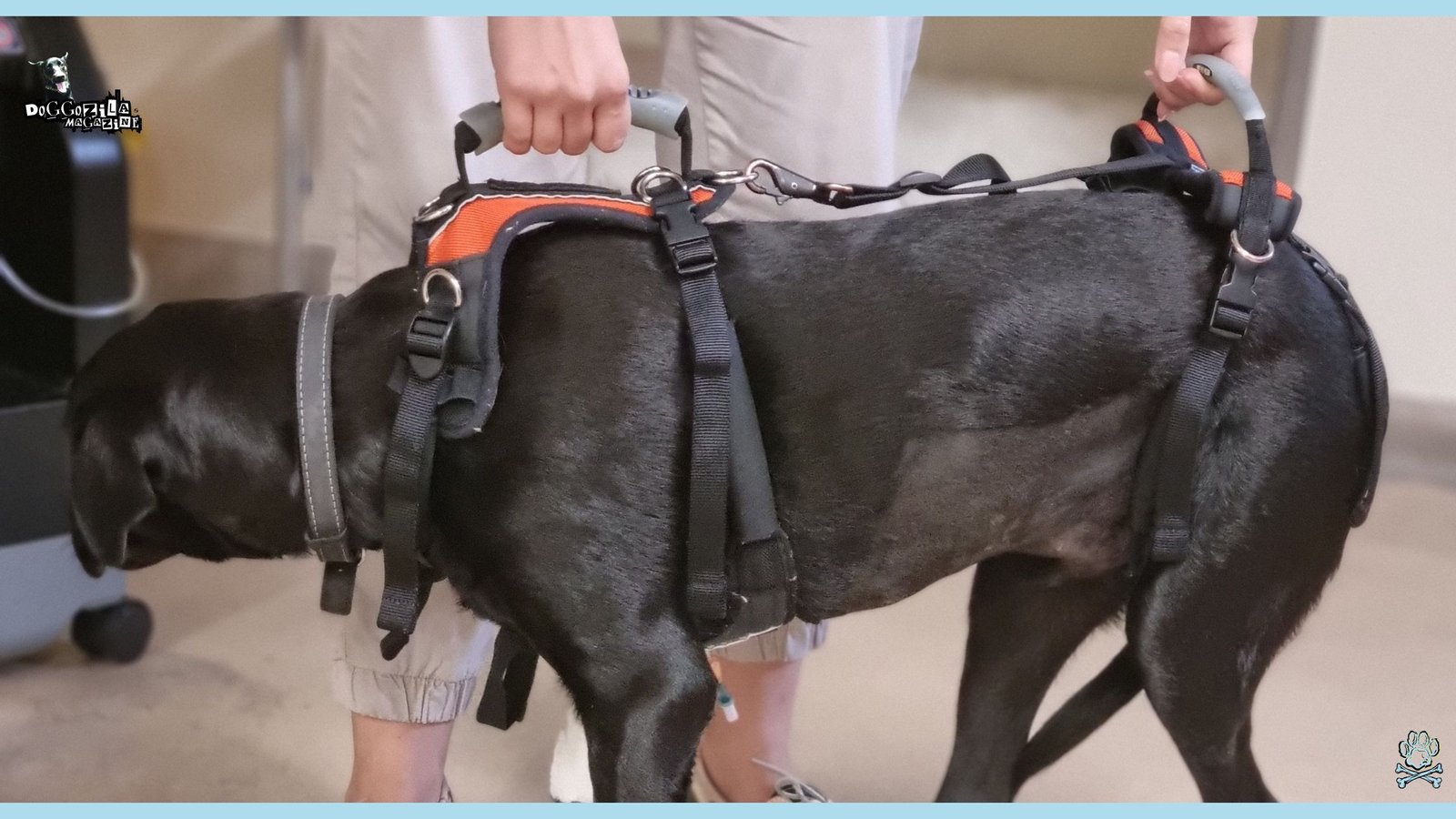
LIVING WITH DOGS DIAGNOSED WITH MUSCULAR DYSTROPHY
Caring for a dog with muscular dystrophy requires patience, adaptability, and lots of love. Adjusting your home environment—such as adding non-slip rugs and ramps—can prevent falls. Regular, gentle exercise helps maintain mobility without overexertion. Despite challenges, many dogs with this condition live happy, fulfilling lives with the right care.
Emotional support is equally important; these dogs may become frustrated as their abilities decline. Connecting with support groups or online communities can provide valuable advice and encouragement.
How to Modify Your Home for a Dog with Muscular Dystrophy
Creating a safe space is essential for dogs with limited mobility. Orthopedic beds reduce pressure on the dog’s joints, while raised food bowls make eating easier. Baby gates can block off stairs or hazardous areas where slipping might occur. If your dog struggles with movement, a doggy wheelchair can restore independence. Small changes, like keeping water bowls on every floor, prevent unnecessary strain.
Emotional Support: Keeping Your Dog Happy and Engaged
Dogs with muscular dystrophy may experience anxiety or depression due to physical limitations. Interactive toys, scent games, and puzzle feeders keep their minds active. Gentle play sessions tailored to their abilities prevent frustration. Positive reinforcement training builds confidence, even if commands are simple. Most importantly, showering them with affection reassures them they’re still cherished.
When to Consider Mobility Aids for Muscular Dystrophy in Dogs
If walking becomes too difficult, mobility aids like harnesses, slings, or carts can be lifesavers. Many dogs adapt quickly to wheelchairs, regaining their zest for exploration. Custom-fitted devices ensure comfort and proper support. Regular vet check-ups help determine the right time to introduce these tools. With the right aid, even severely affected dogs can enjoy walks and playtime.
🔑 Key Points: Dogs with muscular dystrophy serve as valuable models for human research, as the condition closely mirrors human forms like Duchenne muscular dystrophy, aiding in medical breakthroughs.
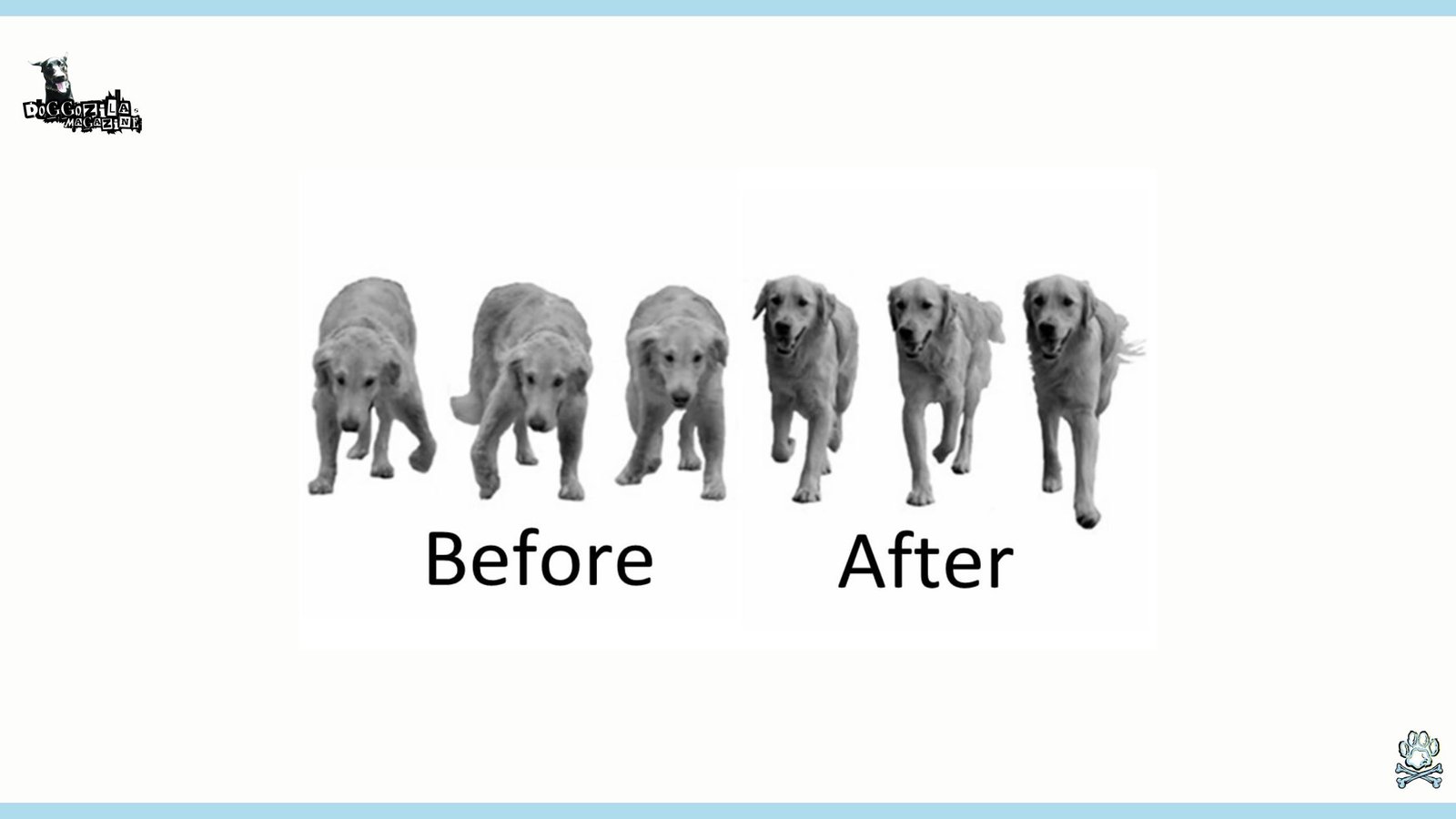
HOPE AND PROGRESS IN MANAGING MUSCULAR DYSTROPHY IN DOGS
While muscular dystrophy in dogs presents challenges, ongoing research and compassionate care offer hope. Early diagnosis, innovative treatments, and lifestyle adjustments can significantly improve outcomes. By staying informed and proactive, pet owners can ensure their dogs live comfortably and joyfully.
The bond between a dog and their human remains unshaken, no matter the obstacles. Together, we can make every moment count.
Making Quality-of-Life Decisions
As muscular dystrophy progresses, owners face difficult decisions about their dog’s care. Quality-of-life assessments should consider multiple factors: Can the dog still enjoy favorite activities? Is pain well-managed? Can they eat, drink, and eliminate without distress?
Many veterinarians recommend the “HHHHHMM” scale (Hurt, Hunger, Hydration, Hygiene, Happiness, Mobility, More good days than bad) as an objective evaluation tool. Some owners create bucket lists of simple pleasures – a pup cup from the drive-thru, a visit to their favorite park, or extra snuggle time.
While euthanasia decisions are profoundly personal, the guiding principle remains preventing suffering rather than prolonging life at all costs. These choices, made with love and veterinary guidance, represent the final act of care for our canine companions.
A Journey of Love and Adaptation
Muscular dystrophy in dogs presents undeniable challenges, but it also reveals the incredible resilience of both canines and their human companions. With today’s management strategies and tomorrow’s promising therapies, affected dogs can enjoy meaningful quality of life. The condition teaches us to celebrate small victories, adapt our expectations, and find new ways to connect.
Most importantly, it reminds us that a dog’s worth isn’t measured by physical abilities, but by the unconditional love they bring to our lives. As research advances and awareness grows, the future shines brighter for dogs facing this diagnosis and the families who adore them.
Final Thought About Muscular Dystrophy in Dogs
While muscular dystrophy in dogs presents challenges, it also reveals how resilient both pets and owners can be. With science advancing and hearts full of compassion, there’s never been more reason for hope. Your dog’s journey—and yours—is about love, not limits.
Research offers hope, with advancements in CRISPR gene editing, exon-skipping drugs, and myostatin inhibitors potentially leading to future cures for both dogs and humans.
